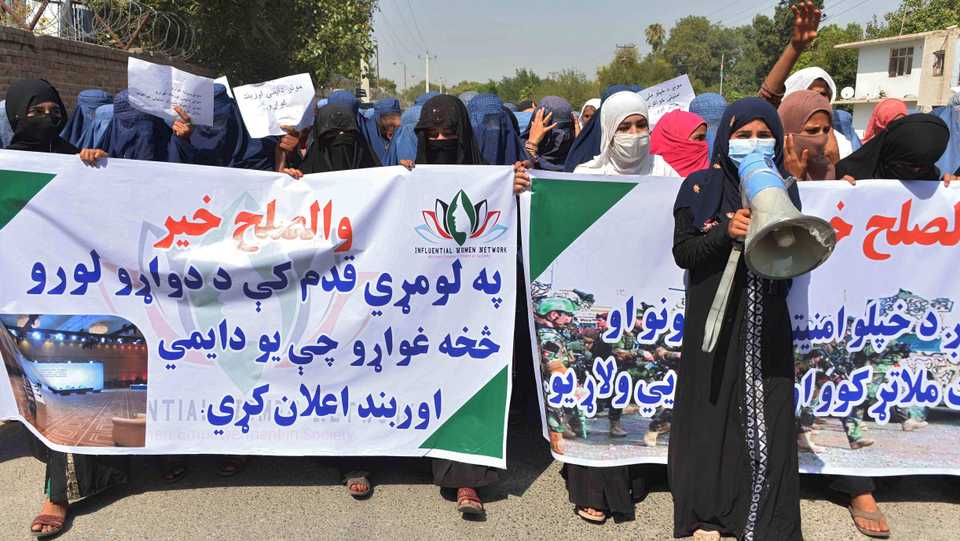
Afghanistan’s government delegation to the Afghan negotiations has said “we hope to reach a ceasefire,” the delegation spokesman told Qatari-owned Al Jazeera TV.
Talks between the Afghan government and the Taliban began in the Qatari capital Doha on Saturday in a bit to end 19 years of war in Afghanistan.
But, fierce fighting between Afghan forces and the Taliban left dozens killed in a restive eastern province, officials said.
Overnight clashes erupted in three districts of Nangarhar province when Taliban fighters attacked several checkpoints of Afghan forces and pro-government militiamen, Ataullah Khogyani, spokesman for the Nangarhar governor told AFP.
He said at least 11 Afghan security personnel were killed in fighting in Hesarak, while eight pro-government militiamen were killed in Khogyani.
READ MORE:Afghan government, Taliban begin peace talks in Doha
Khogyani said about 30 Taliban fighters died in the clashes – including some foreigners.
The radical movement fighting group has not commented on the fighting.
Afghanistan’s acting Defence Minister Asadullah Khalid blamed the Taliban for the fighting.
“There have been no attacks from our side… The enemies continue to attack and spill the blood of Afghans,” he said at a ceremony where US forces handed over four A-29 Super Tucano aircraft to the Afghan military.
Talking to Al Jazeera: There will be no loser in the peace settlement. https://t.co/vuj9RMfh1i
— Dr. Abdullah Abdullah (@DrabdullahCE) September 17, 2020
New ceasefire call unheeded
Abdullah Abdullah, the head of the peace process for the Afghan government, said the ongoing talks offered an opportunity to end the war.
The two warring sides are at the negotiating table, a first in the three decades since the Taliban emerged as a movement across Afghanistan, Abdullah said.
“We recognise the need to get together, to sit together, to present our views which are different from one another, but to find ways how to reconcile those differences,” Abdullah told Doha-based Al Jazeera TV in an interview released on Thursday.
He said negotiations aim to “find ways to be able (to) live together while maintaining some differences and fighting for it politically rather than through violence”.
In his speech at the opening session of the peace talks on Saturday, Abdullah had called for an immediate humanitarian ceasefire, but his plea has gone unanswered.
The Taliban have long worried that reducing violence could lessen their leverage, but have implemented two temporary ceasefires this year itself.
Peace talks had been over a contentious prisoner swap between the two sides.
The negotiations are a result of a deal between the Taliban and Washington signed in February, which also paved the way for withdrawing of all foreign forces by May next year.
READ MORE: The first intra-Afghan peace talks: What’s on the table?










Discussion about this post